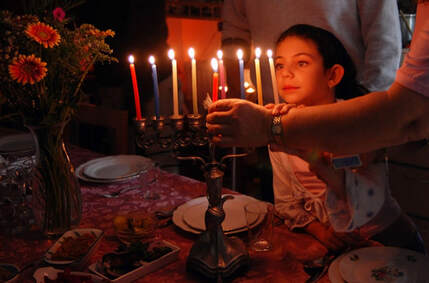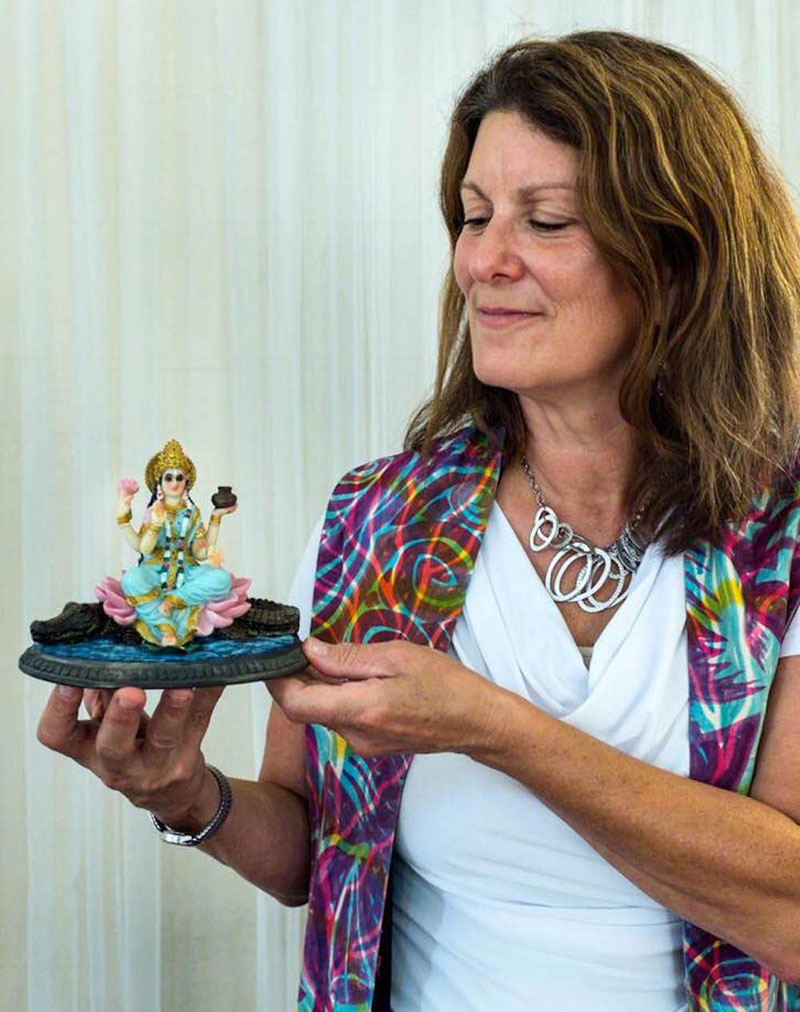My Theology

Although I try not to define myself as an "ist," whenever possible, I would be most comfortable identifying as an "open or spiritual humanist;" that is, one who employs both faith and reason to the fullest to explore and uplift (but not capture) life's exquisite wonder and mystery.
My dominant theology is one in which we are called into relationship (or "thou-ness") with other humans to co-create goodness in the world, with the inspiration of whatever source each of us finds ultimately meaningful or sacred in life. "God" does not make bad things happen, nor does "God" clean up the mess afterwards. Religion is made from people, not from ideology. It's my belief that we co-create either a beloved community or a humanized hell here on earth, in our lifetimes, through our human choices and actions. Evil is real, and although we possess the free will to unleash it, we're called to exercise our moral and ethical impulse not to. The framework of Unitarian Universalism can help us in this endeavor as we strive to co-create constructive outcomes and energy in the world.
There are no UU theologies which I find repugnant. I'm a strong supporter of our fourth principle, "the free and responsible search for truth and meaning," although I believe this freedom requires integrity and a clear covenant of genuine goodwill for theological variety (in the pew and in the pulpit). Our meaning-making focus enables us to be honest about who we are while striving to touch points all along the theological spectrum. This is where our third principle becomes real: "Acceptance of one another and encouragement to spiritual growth in congregations."
In terms of worship, I believe that various theological perspectives or spiritual practices are best dovetailed into the service as they make sense within the communal and spiritual life of the congregation. In other words, authentic worship reflects an essential congregational self-understanding and integrity that exceeds cultural studies or a salad bowl of rituals and practices.
Within this rubric, I strive to preach thoughtful sermons which educate, inspire, and heal. I delight in drawing appropriately from many sources in worship, including the life and teachings of Buddha, Jesus, and other remarkable people, Scripture (thematically), world religions, secular writings, folk tales and poetry, nature, newspaper articles, New Yorker cartoons (!), everyday events, and our strong and honorable UU history and tradition.
My dominant theology is one in which we are called into relationship (or "thou-ness") with other humans to co-create goodness in the world, with the inspiration of whatever source each of us finds ultimately meaningful or sacred in life. "God" does not make bad things happen, nor does "God" clean up the mess afterwards. Religion is made from people, not from ideology. It's my belief that we co-create either a beloved community or a humanized hell here on earth, in our lifetimes, through our human choices and actions. Evil is real, and although we possess the free will to unleash it, we're called to exercise our moral and ethical impulse not to. The framework of Unitarian Universalism can help us in this endeavor as we strive to co-create constructive outcomes and energy in the world.
There are no UU theologies which I find repugnant. I'm a strong supporter of our fourth principle, "the free and responsible search for truth and meaning," although I believe this freedom requires integrity and a clear covenant of genuine goodwill for theological variety (in the pew and in the pulpit). Our meaning-making focus enables us to be honest about who we are while striving to touch points all along the theological spectrum. This is where our third principle becomes real: "Acceptance of one another and encouragement to spiritual growth in congregations."
In terms of worship, I believe that various theological perspectives or spiritual practices are best dovetailed into the service as they make sense within the communal and spiritual life of the congregation. In other words, authentic worship reflects an essential congregational self-understanding and integrity that exceeds cultural studies or a salad bowl of rituals and practices.
Within this rubric, I strive to preach thoughtful sermons which educate, inspire, and heal. I delight in drawing appropriately from many sources in worship, including the life and teachings of Buddha, Jesus, and other remarkable people, Scripture (thematically), world religions, secular writings, folk tales and poetry, nature, newspaper articles, New Yorker cartoons (!), everyday events, and our strong and honorable UU history and tradition.
|
As someone who has never been a Christian, I'd be unlikely to use distinctly religious Christian language, symbols or ideologies (the Apostle's creed or a Christian liturgy of baptism, for example). On the other hand, I can't imagine crafting a Christmas Eve service without some deliberate, contextualized focus on the personhood and inspiration of Jesus or bypassing the theme of renewal or liberation for Passover and Easter. I am comfortable with and use religious language such as: "Spirit of Life," “Mysterious Presence,” “Ground of Being, “God” (contextualized, and as appropriate), and “the sacred as we each understand it.”
In all, I agree with Gandhi that "all religions are true," except for those that depend on oppression in order to exist, and that practicing Unitarian Universalism offers a way to experience "a conversion to our own paths." Along the road, as we navigate the twists and turns, brick walls and blind alleys of our spiritual journeys, we might help one another hold onto whatever form of faith comforts and empowers us -- that is, a faith in our best selves, in one another, and/or in mysteries beyond ourselves; a faith that we are never alone, and that life and humankind are essentially good. |
|
Reverend Robin Landerman Zucker
Ordained Unitarian Universalist Minister Professional Counselor and Educator (She/her) Portland, OR Email: [email protected] Phone: 978-505-7245 Website: www.uurobinzucker.com Copyright © Reverend Robin Landerman Zucker All Rights Reserved.
Website designed by WCW Designs |
“Robin is almost entirely ministerial. Conversations with her reveal the beginnings of sermons, the testing of ideas, the relations being drawn between day to day events and larger spiritual issues common to humankind, and quotes and quirks being collected for future use. She is a champion listener, smiler, planner, hugger, pray-er, people empower-er, leader, singer, parent, partner, talker, eater, coffee-drinker, community builder, advocate, and friend.” |

